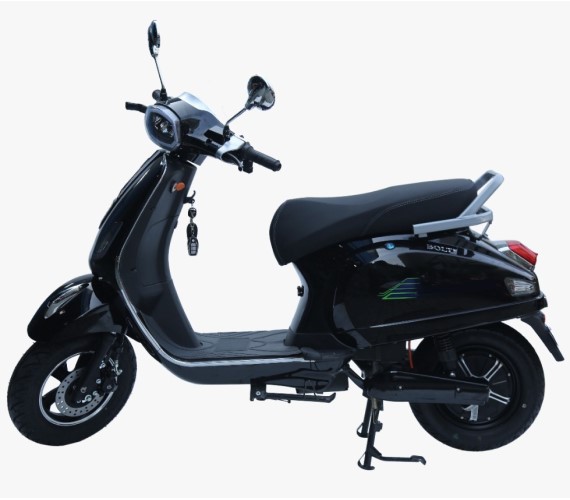
Introduction
In the ever-evolving landscape of urban transportation, the electric scooter bike has emerged as a game-changer, providing a sustainable and efficient solution to the daily commute. As cities grapple with congestion and pollution, the electric scooter bike offers a promising alternative that combines the compactness of a scooter with the eco-friendly prowess of electric power. In this article, we delve into the world of electric scooter bikes, exploring their features, benefits, and the impact they are making on urban mobility.
The Electric Scooter Bike: A Fusion of Efficiency
Eco-Friendly Commuting
One of the key attractions of electric scooter bikes is their eco-friendly nature. With zero emissions and a reliance on electric power, these vehicles contribute significantly to reducing the carbon footprint associated with traditional gasoline-powered alternatives. As cities worldwide strive to combat air pollution and embrace sustainable practices, electric scooter bikes present a compelling solution for environmentally conscious commuters.
Compact Design for Urban Maneuverability
Navigating through congested city streets can be a daunting task, but electric scooter bikes are designed with urban maneuverability in mind. Their compact size allows riders to weave through traffic, find parking spaces with ease, and explore shortcuts that may be inaccessible to bulkier vehicles. The ability to effortlessly maneuver through the urban jungle makes electric scooter bikes an attractive option for those seeking a practical and time-efficient mode of transportation.
Cost-Effective Commuting
Beyond their environmental benefits, electric scooter bikes also offer a cost-effective commuting solution. With rising fuel prices and the ongoing maintenance costs associated with traditional vehicles, electric scooter bikes provide a more affordable alternative. Charging an electric scooter bike is often significantly cheaper than filling up a gas tank, and the overall maintenance costs are generally lower, making it an economically viable choice for budget-conscious commuters.
The Technological Marvel Behind Electric Scooter Bikes
Electric Propulsion Systems
At the heart of every electric scooter bike is its electric propulsion system. These systems typically consist of a rechargeable battery that powers an electric motor. Advances in battery technology have led to improved energy density and longer ranges, allowing riders to cover substantial distances on a single charge. The electric motor provides a smooth and quiet ride, contributing to a more pleasant commuting experience.
Smart Connectivity Features
Modern electric scooter bikes often come equipped with smart connectivity features that enhance the overall riding experience. Smartphone integration, GPS navigation, and Bluetooth connectivity are becoming standard features, allowing riders to stay connected while on the go. Some models even offer mobile apps that provide real-time information about battery status, charging stations, and maintenance alerts, adding a layer of convenience to the electric scooter bike experience.
Safety Considerations and Regulations
Safety Features
Safety is a paramount concern for any mode of transportation, and electric scooter bikes are no exception. Manufacturers prioritize the integration of safety features such as efficient braking systems, LED lighting for enhanced visibility, and sturdy construction. Helmets, reflective gear, and adherence to traffic rules are essential for riders to ensure a safe journey through urban environments.
Regulatory Landscape
As the popularity of electric scooter bikes grows, city officials are grappling with the need to regulate these vehicles to ensure the safety of riders and pedestrians. Many cities have implemented or are in the process of developing regulations that address issues such as speed limits, parking restrictions, and licensing requirements for electric scooter bike riders. Understanding and adhering to these regulations is crucial for riders to enjoy the benefits of electric scooter bikes responsibly.
The Future of Urban Mobility
Integration with Public Transportation
Electric scooter bikes are increasingly being seen as a complementary mode of transportation that integrates seamlessly with existing public transit systems. Cities are exploring ways to incorporate electric scooter bike-sharing programs into their public transportation networks, providing commuters with a flexible and efficient first- and last-mile solution.
Innovation and Evolution
The electric scooter bike industry is witnessing constant innovation and evolution. As technology advances, we can expect improvements in battery efficiency, increased range, and enhanced safety features. The ongoing collaboration between manufacturers, urban planners, and policymakers will play a crucial role in shaping the future of electric scooter bikes and their integration into the urban mobility landscape.
Conclusion
The electric scooter bike has emerged as a beacon of hope in the quest for sustainable and efficient urban transportation. With their eco-friendly credentials, compact design, and technological innovations, these vehicles are transforming the way people navigate the urban jungle. As cities continue to embrace the need for cleaner and more accessible transportation options, electric scooter bikes are poised to play a pivotal role in shaping the future of urban mobility.
Recommended Articles: Bikes Electric
Sur-Ron Front Wheel Axle Assembly